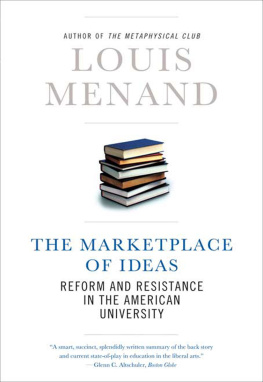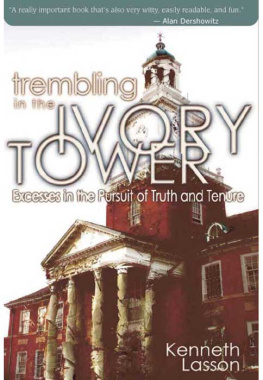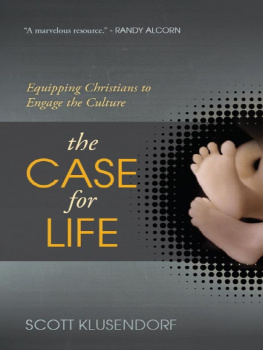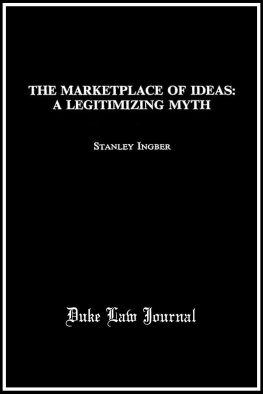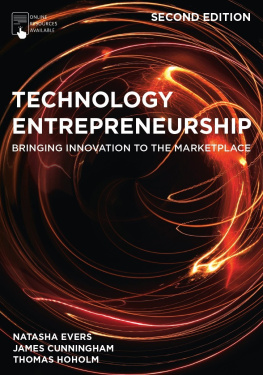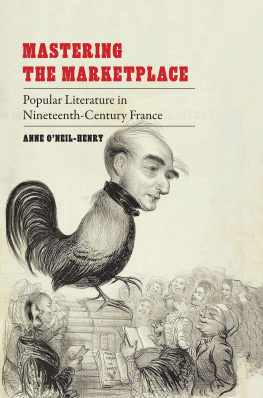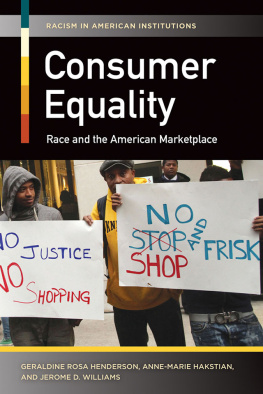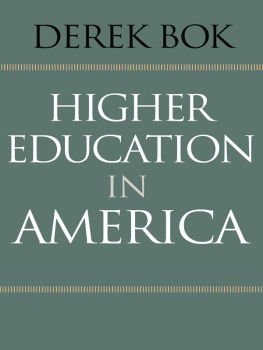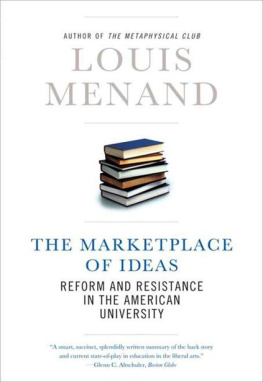Menand - The Marketplace of Ideas
Here you can read online Menand - The Marketplace of Ideas full text of the book (entire story) in english for free. Download pdf and epub, get meaning, cover and reviews about this ebook. City: New York;USA, year: 2010, publisher: W. W. Norton & Company, genre: Religion. Description of the work, (preface) as well as reviews are available. Best literature library LitArk.com created for fans of good reading and offers a wide selection of genres:
Romance novel
Science fiction
Adventure
Detective
Science
History
Home and family
Prose
Art
Politics
Computer
Non-fiction
Religion
Business
Children
Humor
Choose a favorite category and find really read worthwhile books. Enjoy immersion in the world of imagination, feel the emotions of the characters or learn something new for yourself, make an fascinating discovery.
The Marketplace of Ideas: summary, description and annotation
We offer to read an annotation, description, summary or preface (depends on what the author of the book "The Marketplace of Ideas" wrote himself). If you haven't found the necessary information about the book — write in the comments, we will try to find it.
Crisp and illuminating . . . well worth reading.Wall Street JournalThe publication of The Marketplace of Ideas has precipitated a lively debate about the future of the American university system: what makes it so hard for colleges to decide which subjects are required? Why are so many academics against the concept of interdisciplinary studies? From his position at the heart of academe, Harvard professor Louis Menand thinks hes found the answer. Despite the vast social changes and technological advancements that have revolutionized the society at large, general principles of scholarly organization, curriculum, and philosophy have remained remarkably static. Sparking a long-overdue debate about the future of American education, The Marketplace of Ideas argues that twenty-first-century professors and students are essentially trying to function in a nineteenth-century system, and that the resulting conflict threatens to overshadow the basic pursuit of...
Menand: author's other books
Who wrote The Marketplace of Ideas? Find out the surname, the name of the author of the book and a list of all author's works by series.

